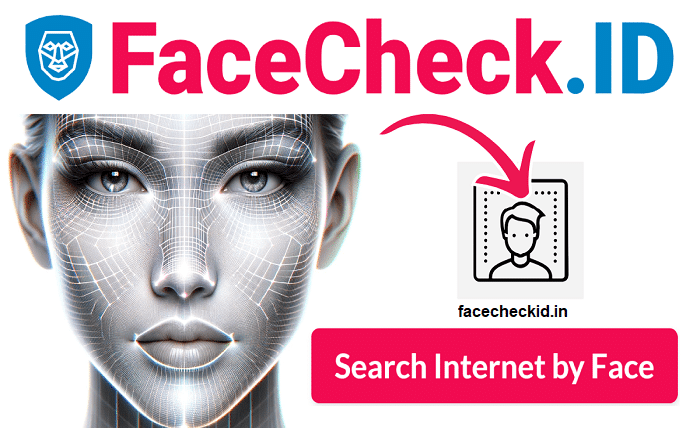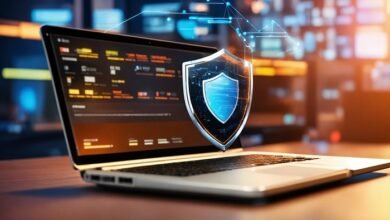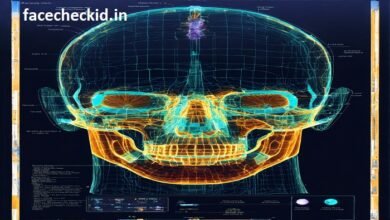
Introduction to Facecheck id
Facecheck id is a groundbreaking technology designed to enhance security and streamline verification processes across various platforms. Whether it’s for accessing secure areas, verifying identities, or enhancing online transactions, Facecheck id is becoming increasingly important. By integrating facial recognition and advanced algorithms, Facecheck id ensures that only authorized users can access sensitive information or areas, providing a higher level of security and convenience.
What is Facecheck id?
At its core, Facecheck id is a facial recognition technology that uses biometrics to identify and verify individuals. The technology works by analyzing facial features, such as the distance between the eyes, nose, and mouth, and creating a unique facial signature for each user. This facial signature is then stored in a secure database and used to verify the individual’s identity during future interactions. Facecheck id is used in various industries, including banking, healthcare, and security, where accurate and reliable identification is critical.
How Does Facecheck id Work?
Facecheck id operates through a combination of hardware and software. The process begins with capturing an image of the user’s face using a camera, usually integrated into a smartphone or computer. The Facecheck id software then processes this image, extracting key facial features and converting them into a digital signature. This digital signature is then compared to a database of stored facial signatures to verify the user’s identity. The entire process is quick, efficient, and designed to minimize the risk of fraud or unauthorized access.
The Benefits of Using Facecheck id
Facecheck id offers numerous benefits for both individuals and organizations. For users, Facecheck ID provides a convenient and secure way to verify their identity without the need for passwords or PINs. This reduces the risk of forgotten passwords or unauthorized access. For organizations, Facecheck id enhances security by ensuring that only authorized individuals can access sensitive information or areas. Additionally, Facecheck id can streamline processes such as onboarding new employees or verifying customer identities, saving time and resources.
Applications of Facecheck id in Various Industries
The versatility of Facecheck id makes it applicable across multiple industries. In the banking sector, Facecheck id is used to verify customer identities during online transactions, reducing the risk of fraud. In healthcare, Facecheck id ensures that only authorized personnel can access patient records, protecting sensitive information. The technology is also used in law enforcement for identifying suspects or verifying the identities of individuals in custody. Furthermore, Facecheck id is increasingly being adopted in the travel industry for passport verification and security checks at airports.
iFreeChat is a free, cross-platform messaging app that offers secure, real-time communication with a focus on privacy. It allows users to send texts, multimedia, and make voice or video calls without any subscription fees.
Security and Privacy Concerns with Facecheck id
While Facecheck id offers enhanced security, it also raises concerns regarding privacy and data protection. The collection and storage of biometric data, such as facial signatures, must be handled with care to prevent unauthorized access or misuse. Organizations using Facecheck id must comply with data protection regulations, such as the General Data Protection Regulation (GDPR), to ensure that users’ biometric data is securely stored and processed. Additionally, users should be informed about how their data is being used and have the option to opt out if they do not wish to participate in Facecheck id programs.
Read more about: uploadarticle
The Future of Facecheck id Technology
The future of Facecheck id technology looks promising, with advancements in artificial intelligence and machine learning to enhance its accuracy and efficiency. As facial recognition technology becomes more sophisticated, Facecheck ID will likely be integrated into more applications and industries. Innovations such as 3D facial recognition and liveness detection are expected to improve the security and reliability of Facecheck id, making it an even more essential tool for identity verification in the digital age.
Challenges Facing Facecheck id Implementation
Despite its benefits, the implementation of Facecheck id technology is not without challenges. One of the primary concerns is the potential for bias in facial recognition algorithms, which can lead to inaccuracies in identifying individuals from diverse ethnic backgrounds. Additionally, the high cost of implementing Facecheck id systems may be a barrier for smaller organizations. Ensuring user trust and addressing privacy concerns are also critical to the successful adoption of Facecheck id technology.
Read more about: blooket join
How to Implement Facecheck id in Your Organization
Implementing Facecheck id in your organization requires careful planning and consideration. Start by identifying the specific use cases where Facecheck id can enhance security or streamline processes. Next, choose a reputable provider of Facecheck id technology with a proven track record of accuracy and security. Ensure that your organization complies with data protection regulations and that all staff are trained in the proper use of Facecheck ID systems. Finally, communicate with your users about the benefits of Facecheck id and how their data will be protected.
Read more about: vedu app
User Experiences and Case Studies of Facecheck id
Numerous organizations have successfully implemented Facecheck id, reaping the benefits of enhanced security and streamlined operations. For example, a major bank reported a significant reduction in fraud cases after adopting Facecheck id for online transactions. In healthcare, a hospital implemented Facecheck id to control access to patient records, resulting in improved data security and compliance with privacy regulations. These case studies demonstrate the effectiveness of Facecheck id in real-world scenarios and highlight the potential for broader adoption across various industries.
Read more about: megafamous
Conclusion
Facecheck id is revolutionizing the way we think about security and identity verification. With its ability to provide quick, accurate, and secure identification, Facecheck id is becoming an essential tool for organizations and individuals alike. While there are challenges and concerns to address, the benefits of Facecheck id far outweigh the risks. As technology continues to evolve, Facecheck id is poised to play a significant role in the future of security and digital interactions.
FAQs
- What is Facecheck id?
Facecheck id is a facial recognition technology used for verifying and identifying individuals based on their unique facial features. - How secure is Facecheck id?
Facecheck id is designed to be highly secure, using advanced algorithms and encryption to protect users’ biometric data. - Can Facecheck id be used in multiple industries?
Yes, Facecheck id is versatile and can be used in various industries, including banking, healthcare, law enforcement, and travel. - What are the privacy concerns with Facecheck id?
Privacy concerns include the potential misuse of biometric data and the need for organizations to comply with data protection regulations. - How do I implement Facecheck id in my organization?
To implement Facecheck id, identify relevant use cases, select a reputable provider, ensure data protection compliance, and train staff on the technology’s use.
Read more about: gazettedupmu2





